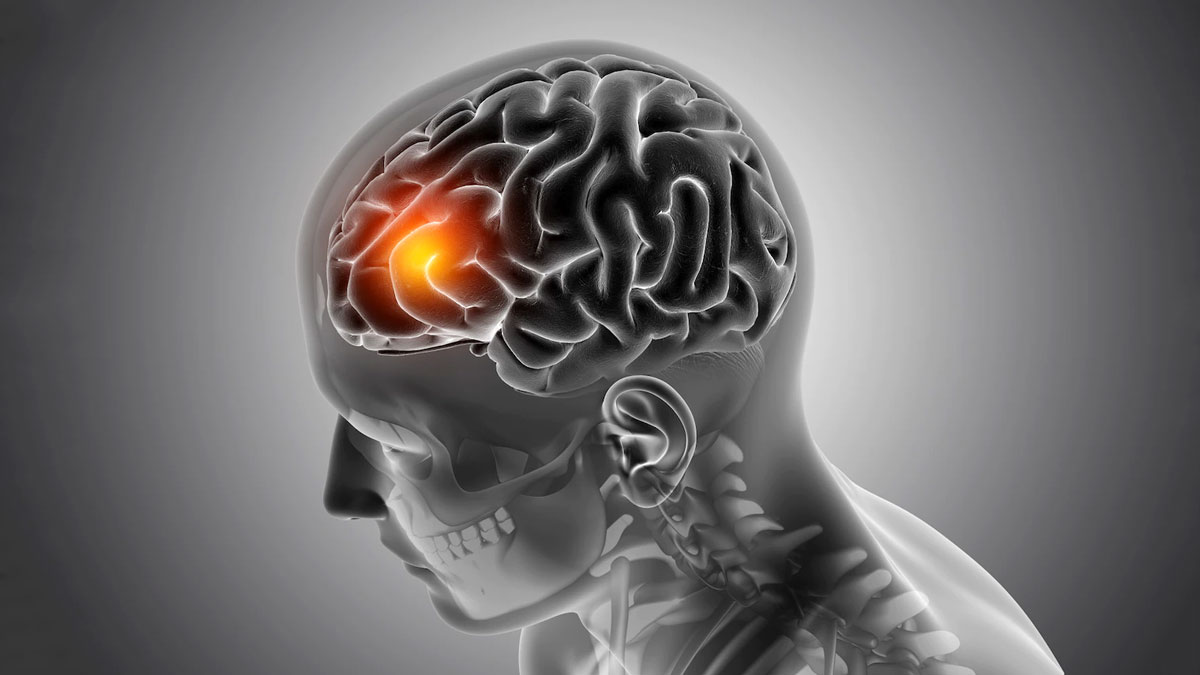
Headaches are a familiar complaint, troubling almost everyone at some time. From mild tension headaches to painful migraines, most are harmless and disappear with sleep or over-the-counter medication. But the persistent concern always arises and experts warn that might this headache be indicative of something more? More particularly, concern about a brain tumour is always present.
Table of Content:-
“While it's crucial to understand that headaches are rarely the sole indicator of brain cancer, and the vast majority are not, it's equally important to be informed about potential warning signs and when to seek medical attention,” our expert, Dr Anil Thakwani, Consultant and Senior Oncologist, Shardacare, Health City, Noida, explained.
What Is The Link Between Headaches and Brain Tumours?
Headaches that come with brain tumours are usually distinct from normal headaches. The headache itself may not be unusual, but its traits, which symptoms accompany it with, and the way it evolves can be diagnostic. “Brain tumours may lead to headaches by raising pressure inside the skull, compressing sensitive structures, or disrupting the cerebrospinal fluid flow,” Dr Thakwani highlighted.
When to Be Concerned and Red Flags to Watch For
While it's worth avoiding hysteria over every headache, some features will make you want to see your doctor. These "red flags" indicate that your headache may need investigating:
1. New or Increasing Headache
A headache that is new to you, particularly if you are over 50, or a long-standing headache that either changes in character or suddenly increases or decreases in intensity.
2. Headache that Wakes You Up
Headaches that consistently wake you from sleep are particularly concerning, as intracranial pressure tends to be highest in the morning.
Also Read: Can Your Mental State Trigger Skin Flare-Ups? Dermat Tells

3. Headache that is Worse in the Morning
Similar to the above, a headache that is most severe upon waking and improves throughout the day.
3. Headache Accompanied by Neurological Symptoms
Headaches which are accompanied by neurological symptoms are a critical indicator. Look out for:
- Unexplained Vomiting or Nausea: Particularly if it's projectile and not caused by stomach upset.
- Changes in Vision: Blurred vision, double vision, loss of peripheral vision, or even blindness in one eye.
- Weakness or Numbness: In an arm, leg, or on one side of your face.
- Trouble with Balance or Coordination: Stumbling, unsteadiness, or new clumsiness.
- Slurred Speech: Difficulty speaking, trouble with word-finding, or understanding others.
- Seizures: New-onset seizures in an adult with no previous history.
- Cognitive Changes: Memory, concentration, personality, or confusion problems.
4. Headache that Worsens with Coughing, Sneezing, or Straining
These maneuvers temporarily augment intracranial pressure, worsening headaches due to tumours.
5. Headache that is Unrelenting
A headache that lasts for days or weeks without letup, or becomes increasingly severe.
6. Changes in Mental Status or Personality
Slender but appreciable changes in mood, behavior, or mental function.
What to Ask Your Doctor?
If you have any of the following red flags, or if you just get a nagging headache that worries you, see your doctor. Preparation will enable you to give clear explanations and allow you to take full advantage of your visit. Here are a few questions to keep handy:

Information To Give To Your Doctor!
- When did the headaches begin?
- How frequently do headaches happen?
- What do they hurt like (throbbing, dull, sharp, pressure)?
- Where is the pain?
- How bad is the pain on a scale of 1-10?
- What improves or worsens them? (e.g., rest, light, noise, certain activities)
- Have you used any medications, and did they improve them?
- Accompanying Symptoms: List all the other symptoms you've had, regardless of how small you think they are.Medical History: List any previous medical history, surgeries, and current medications (including over-the-counter medication and supplements).
- Family History: List any family history of cancer or neurological disease.
- Recent Illnesses or Injuries: Even seemingly unrelated illnesses or injuries may sometimes offer a clue.
Questions to Ask Your Doctor
- "Based on my symptoms, what is your opinion of what might be causing my headaches?"
- "Are there any 'red flags' in my symptoms that worry you?"
- "What testing would you suggest to look into my headaches?" (e.g., blood work, MRI, CT scan, neurological evaluation)
- "What are the risks and benefits of doing these tests?"
- "If the tests reveal nothing definitive, what do I do next?"
- "Am I worried about a brain tumour?" (It's all right to express your particular concerns)
- "What are the various treatments if something serious is diagnosed?""What are some lifestyle modifications or home remedies that may be able to help control my headaches in the interim?"
- "When should I check back, or when should I go to the emergency room?"
Bottomline
Although the idea of a brain tumour is terrifying, keep in mind that early detection greatly enhances treatment. Don't ignore persistent or recurrent headaches, particularly if they are accompanied by other neurologic symptoms. Trust your instincts and speak up for your health.
Your physician is your ally in this process. By giving them complete and concise information, and asking relevant questions, you enable them to establish a precise diagnosis and steer you in the right direction.
[Disclaimer: This article is meant for general information only and is not medical advice. It is important to consult a qualified health professional in any health issues or before making any decision regarding your health or treatment.]
Also watch this video
How we keep this article up to date:
We work with experts and keep a close eye on the latest in health and wellness. Whenever there is a new research or helpful information, we update our articles with accurate and useful advice.
Current Version